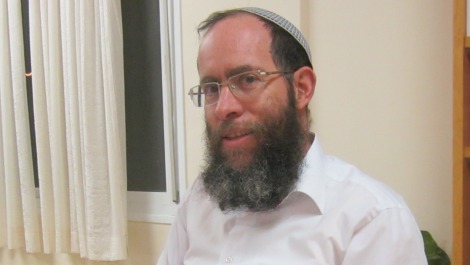Beit Midrash
- Jewish Laws and Thoughts
- Jewish Thought
- Subjects of Jewish Thougts
Translated by Hillel Fendel
Question: [ed. note: The question includes unfounded assertions]
It is known that the basic assumption of science is the concept of scientific determinism [the doctrine that the operation of natural laws determines all, including human choices]. Natural law determines the development of the universe, based on its particular state at a given time. According to modern science, G-d is unable to intervene and "break" these laws – otherwise they would not be laws.
This leaves G-d only with the freedom to choose the "original state" of the universe – but there, too, it appears that there must be a law. Therefore, science declares that G-d has no wiggle room at all. Accordingly, the Rambam was right in writing that even the miracles were determined during the first Six Days of Creation. It is his opinion that it is not proper to think that G-d would "change his mind" or His will. However, as is known, the Maharal of Prague totally did not accept this approach, and wrote, based on early Kabbalist rabbis, that G-d's will is not His essence, and therefore we have no problem saying that G-d might change His mind.
I am inclined to accept the Rambam's position, as G-d told the Prophet Malachi (3,6), "I am G-d, I did not change." I would be happy if you could provide me with a clear explanation and resolution of this topic.
Answer: Your assumptions are not quite precise.
1) Modern science no longer relies exclusively on determinism; the quants, the kinetics of gas, and other natural phenomenon have negated the extreme deterministic approach, replacing it with the "statistically probabilistic" approach. There are many areas which, even according to the old approach, were not absolutely deterministic, such as weather forecasts. Therefore, the appearance of miracles cannot at all be ruled out.
2) Science does not deal at all with "G-d;" He is out of bounds regarding scientific thought. Science deals with physics, not meta-physics. As such, statements averring that science "declares" something about G-d's freedom of movement are not scientific at all.
3) The Rambam never said that G-d has no will, and in fact he said the opposite. He actually holds that the very decision to create the world was a matter of G-d's will, as was the manner in which it was created, the timing, etc. This itself leads to the possibility of miracles, as the Rambam states clearly. However, he says that the miracles do not negate the natural law that G-d instituted in the world. There is of course much more to say on this topic, but for now we conclude that G-d does in fact "choose" to perform miracles when He wants to.
In order to get articles like this delivered straight to your inbox every week, subscribe to the Israel National Torah newsletter here.

Is Religious Faith Simply a Matter of Convenience?
Rabbi Shmuel Ariel | Tevet 6 5783

The Community vs the Individual
Rabbi Haggai Lundin | 20 Shvat 5784

The Age of the Universe
Rabbi Chanan Morrison | 5770























